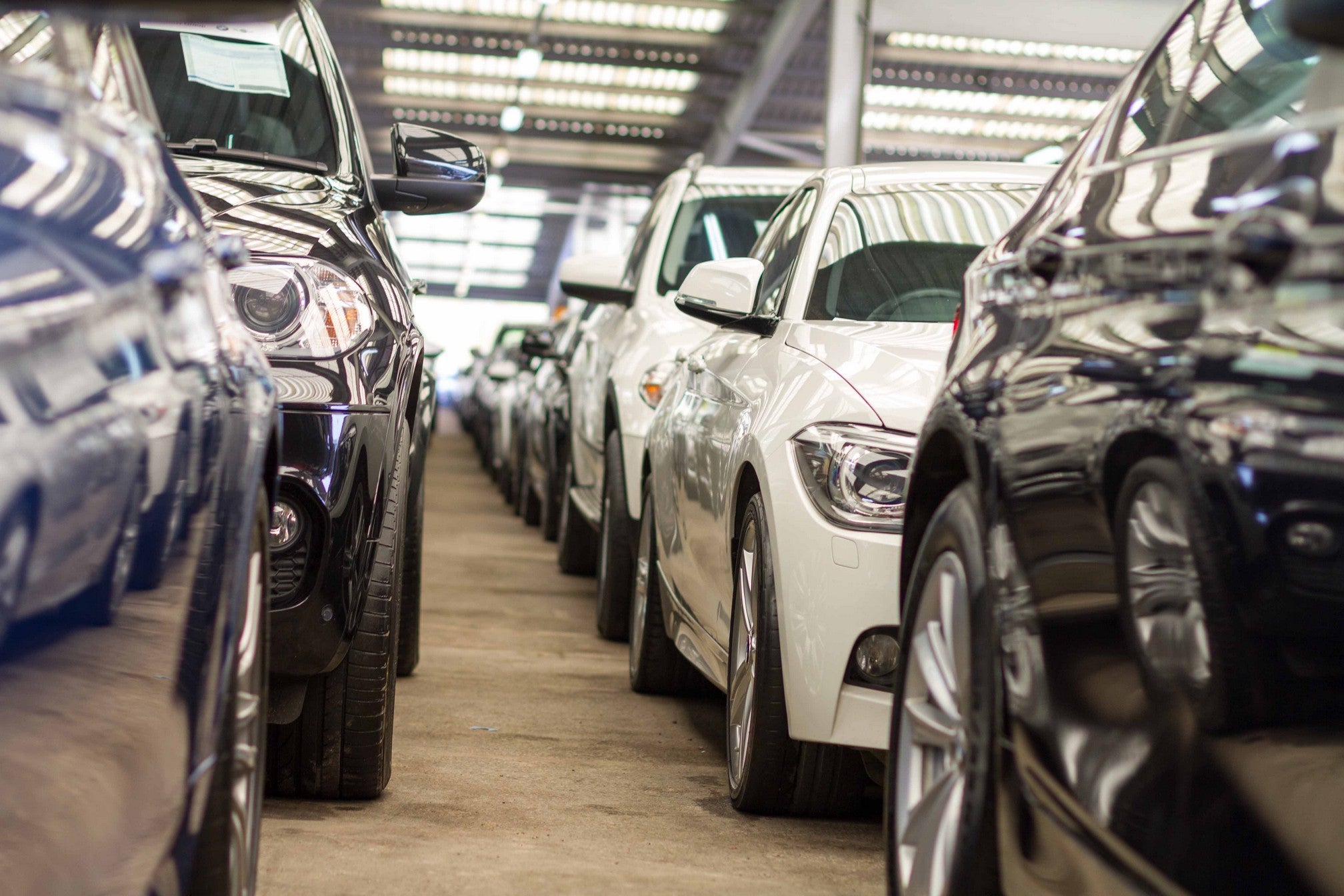
UK new car registrations fell 7.3% in January, according to the latest figures released by the Society of Manufacturers and Motor Traders (SMMT).
Low consumer demand was a driver in the decline, with private buyers and fleet registrations seeing significant falls of 13.9% and 2.2% respectively.
Only 149,279 vehicles left showrooms in January with continued confusion surrounding clean air zones and ongoing weak consumer and business confidence hindering progress.
Registrations of new diesel cars fell for the 34th month, by 36% to record the weakest performance since 2000 and just 19.8% share of the market, while petrol demand also declined, by 9.5%.
Alternatively fuelled cars continued to grow in popularity, with hybrid electric car (HEV) sales increasing 20.6%. Plug-in hybrid electric vehicle (PHEV) demand more than doubled, up 111.1% to 4,788 units and battery electric vehicle (BEV) registrations surged up 203.9% to 4,054 units and a 2.7% market share.
Combined, alternatively fuelled vehicle registrations reached 11.9% of the market in January the highest on record and up from 6.8% in the same month last year.
How well do you really know your competitors?
Access the most comprehensive Company Profiles on the market, powered by GlobalData. Save hours of research. Gain competitive edge.

Thank you!
Your download email will arrive shortly
Not ready to buy yet? Download a free sample
We are confident about the unique quality of our Company Profiles. However, we want you to make the most beneficial decision for your business, so we offer a free sample that you can download by submitting the below form
By GlobalDataThe figures come a day after the government announced its ambition to end the sale of all vehicles with an internal combustion engine, including HEVs and PHEVs, by 2035.
These vehicles, alongside the latest low emission petrols and diesels, have a vital role to play in the transition to zero emission transport and an outright ban will hamper innovation and hold back progress, according to the SMMT.
Mike Hawes, SMMT chief executive, said: “The new car market is a key driver of the UK’s overall economy, so another month of decline is unsettling. Consumer confidence is not returning to the market and will not be helped by government’s decision to add further confusion and instability by moving the goalposts on the end of sale of internal combustion engine cars. While ambition is understandable, as we must address climate change and air quality concerns, blanket bans do not help short-term consumer confidence.
“To be successful, government must lead the transition with an extensive and appropriately funded package of fiscal incentives, policies and investment to drive demand. We want to deliver air quality and environmental improvements now but need a strong market to do so.”
Industry reaction:
Michael Woodward, UK automotive lead at Deloitte, said: “This news represents a disappointing start to the new year. After a long period of political uncertainty, consumers and businesses have entered the new decade with more optimism. This should be good news for car sales in 2020, but it may take time for the market to catch up.”
James Fairclough, chief executive of AA cars said: “January’s 7.3% fall in sales suggests it will take the car industry some time to bounce back from a challenging 2019. The continued slide in demand for diesels is a big contributor to the overall fall in new car sales, alongside this month’s 9.5% decline in petrol sales.
“The government’s announcement yesterday that it intends to ban the selling of new hybrid cars by 2035, alongside new petrol and diesel vehicles, will shift buying patterns in the years ahead.
Including hybrids in the ban could prove to be counterproductive if it leads some drivers to hold onto petrol and diesel cars for longer.”
Sue Robinson, director of the National Franchised Dealers Association (NFDA), said: “Today’s new car sales figures showing a decline of -7.3% in January are disappointing, however, this follows a particularly strong December when consumers could benefit from a wide range of manufacturer offers.
“When planning future policies, it is crucial that the Government recognises the investments that will be required by franchised retailers and those that have already been made to meet the fast-changing consumer demand. Additionally, we urge the Government to reconsider its plans to ban the sales of new plug-in hybrids by 2035 considering the growth that this segment is experiencing.”
Auto Trader’s commercial director Ian Plummer added: “Yesterday’s announcement reaffirms consumers’ interest in electric vehicles, as consumers searching for EVs increased by over 165% on Auto Trader. Advert views of EV cars on the UK’s largest automotive marketplace increased by a massive 143%, when compared with the previous day. However, the pressure is on to ensure the supply of EVs is there, and that those cars are available at an affordable price. Government grants and incentives remain crucial if we are to see EV sales increase at any kind of meaningful rate.”







